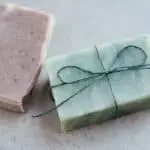When it comes to personal hygiene, no one wants to compromise on it, and no one should. Soaps have been used for the purpose of cleaning and skincare for longer than most can imagine. Thus it is only natural for people to prefer DIYing them nowadays because we are all about using our creativity. Here we will learn about different oils for soap so that you secure safe points both in the skincare and DIY department.

No one can deny the fact that one of the perks of making your soaps at home is that you can do whatever you want. You can choose the oils for soap, and you can also decide on various other parameters such as fragrance, color, the number of oils, and numerous other things.
But selecting oils for soap should be your priority. This is because these oils are responsible for guaranteeing your skin the proper moisturizing properties and are also pertinent for locking the humidity inside your skin. The soap oils then also decide the bar lather and the designs you want. Today we have decided to share with you all, some of the oils for soap that you need to keep an eye on the next time you decide to customize your soap.
Apricot Kernel Oil; Shelf Life One Year

Apricot kernel oil makes the top of our list of oils for making soap. It is not only a lightweight soap oil but is also rich in linoleic and oleic acids. Apricot kernel oil grants your skin conditioning and is highly adjustable with your skin’s ecosystem. This is what makes it one of the perfect candidates for your list of oils for making soap.
It is also good for producing small bubbles when you use it. If you are opting for this soap oil, you should definitely use 15% or slightly more than this in your recipes. This makes sure that the bars of soap are not that brittle as the soap base settles in and also lasts for longer periods of time in the shower.
Argan Oil; Shelf Life Two Years

Argan oil has long been used in the making of soaps and other sorts of skincare as well as bath products such as bath bombs. This is why these amazing essential oils feel so good against your skin and is also good for hydrating. Furthermore, argan oil is rich in Vitamin E and A.
One can easily use argan oil to make soaps through cold processes. You can use 10% of argan oil in such instances of natural soap.
Avocado Oil; Shelf Life One Year

Avocado is not only a wondrous fruit but is also the main ingredient of various skincare products such as face washes and soaps. We would recommend you to use almost 20% of the avocado oil in your cold process soaps.
Just like argan oil, Avocado oil is also rich in a number of vitamins such as A, B, D, and E. Avocado is rich in fatty acids and thus is a perfect candidate for skin care products such as lotions, body butter, and conditioners also. You can make use of avocado oil as soap oil in various soap recipes, such as:
- Avocado soap
- Avocado+ spearmint soap
- Cucumber and aloe soap
This fragrance oil is one for the books and skin 😉

Avocado Butter Oils for Soap; Shelf Life 3 years
Well, this one is not exactly a soap oil because it is in solid form at room temperature. Avocado butter is normally derived from the fruit of the tree, and after that, it is hydrogenated. Butter is good for skin, and no one can dare to deny that. Avocado butter has a cream-like consistency, and thus, your skin will feel fresh and soft to the touch after you choose to use it as your soap oil.
With a 12% of rich ratio, you can make use of avocado butter in your soap-making process. Other than being one of the potential oils for soap, you can also make use of it in your lotions and body butter, and other types of skincare products.
Babassu Oil; Shelf Life Two Years

Babassu is a native of Brazil, and it comes from a Brazilian palm tree. You can use this one as a substitute for coconut and almond oils as oil for making soap, even in the cold process.
From properly cleaning your skin to plumping it from the inside, this babassu oil is the best choice for your soap-making arrangements. But remember, you have to add 33% of the oil to the mixture.
In addition to all this, babassu oil also has a lighter touch to the skin and absorbs quickly.
Beeswax Oils for soap (White and Yellow); Shelf Life Three Years

If you are in search of natural oils for soap, then yellow beeswax is the soap oil for you. It is neither bleached nor refined. On the other hand, white beeswax is also bleached and refined. But that is also through natural processes by exposing the beeswax in thin layers to air, sunlight, and moisture content. You can try to use 8% of it in cold process recipes. Or you can also use it to harden the soap bars.
In order to use beeswax as oils in soap making, you first have to adjust the lye and oil at a temperature of 150 degrees F or even higher than that so that the beeswax does not solidify. Then this essential oil can be the perfect candidate for your bath bomb and soap bar alike. This handmade soap will be the perfect fit for your skin.
Borage Oil; Shelf Life Three Years

Among all the oils for soap on this list, borage oil holds the highest context of essential fatty acids. Gamma-linolenic acid is one such fatty acid that does everything for your skin, from hydrating it to nourishing it; this acid is extremely good for your skin.
Thus if you have sensitive skin and are afraid of using harsh chemicals, you should try to use this soap oil for your bars. It will agree with your sensitive and mature skin. You can also try to use 33% of it in cold processes.
Canola Oil; Shelf Life One Year

One of the best oils for soap is this one. Canola oil is a cost-effective oil for your soap-making experiments. Canola oil is good for the skin as it is rich in vitamin D. it boosts the necessary nutrients in your skin and nourishes it from the inside so that you can enjoy fresh and full-of-life skin. Thus the homemade soap with this soap oil will make your skin fresh.
You can freely use it in a ration of 15-40% in your cold process soaps so that you can enjoy the perks of a balanced bar and creamy lather.
Carrot Seed Oil; Shelf Life One Year

The carrot seed oil has a silky texture that no one can ever forget. Not only is it lightweight, but it also agrees with your skin ecosystem. Carrot seed oil is especially good for those who have sensitive skin. Thus try it today in your soapmaker. You can use it in 5-15% concentrations as this is a cold-pressed oil.
Castor Oil; Shelf Life Two Years
Castor oil is extracted from castor bean plants. Its oil is a famous soap oil and has been used in skincare products for quite some time. It draws moisture to the skin and then looks inside it so that the skin is not dull or boring.

For your soap recipes, you can try to use 2 to 5% of these oils. But if you like your soaps to be a bit more sticky, you can try this soap oil for 25% of its ratio. The bars of soap will be soft as well as sticky.
Chia Seed Oil; Shelf Life One Year

Chia seed oil is hand’s down one of the best oils for soap. It is what can be the right ingredient for your homemade soaps, body products such as body butter, conditioners, and, yes, your cuticle oil. This is also a lightweight oil that provides the perfect dose of moisture to your skin.
Chia seed oil is also rich in fatty acids, proteins, and vitamins. You can easily use this soap oil for your cold process soaps in the ratio of 10%.
Cocoa Butter Pastilles, Organic Cocoa Butter Wafers, Deodorized Cocoa Butter Oils for soap; Shelf Life Two Years

This one is butter at room temperature that changes into a liquid once it is provided with the right temperatures. Cocoa butter is one of the best oils for making soap. This is because it adds a luxurious and moisturizing texture to your soap and your skin. But you need to remember the fact that it is best to customize the proportions of this soap according to your taste and skincare requirements.
Try to use 15% of the ratio in your cold process soap bars. Because if you are deciding more, then it can cause cracks in your bars.
Coconut Oil; Shelf Life 18 Months

No one is immune to the charms of coconut oil. It is hands down one of the most used oils for soaps and other types of skincare products. Thus it is no wonder that we are discussing it here.
Coconut oil comes in various versions, such as coconut oil has a melting point of 76 degrees, and then coconut oil melts at 92 degrees F. but the SAP value of both these oils is exactly the same, and that is SAP.
Coconut oil is one of the premium oils for making soap because it has cleansing properties and also produces a great number of bubbles in the bath. It can also cause dryness in the skin; thus, you should try to use it at around 15%. But if you suffer from no such issues, then you can make use of 33%
Coffee Butter Oils for Soap; Shelf Life Two Years
Coffee butter is a luscious and rich butter with several premium features. It’s a perfect candidate for body butter, and lotions and is a great oil for soap-making scenarios. It contains around 1% of natural caffeine. In addition to all this, coffee butter also has a maddening scent of natural coffee beans. It also has a rich and creamy texture that is hard to beat. You can try to make your soaps by using 6% of this one. Not to flaunt, but it is also a rich blend of hydrogenated vegetable oil and coffee seed oil.

Coffee Seed Oils for Soap; Shelf Life Two Years

Cofee seed oil owes its origin to freshly roasted coffee beans. It has all the right properties one needs in their skincare products. It is rich and creamy, and the scent will keep you hooked for quite some time. You can also use this soap oil in various other products such as lotions, balms, and bath bombs.
For your cold process soaps, try using them in a 10% ratio.
Cucumber Seed Oil; Shelf Life Two Years

Cucumber oil is a must for your summer soaps. It is especially pertinent for those who have dry and sensitive skin. Even those who have mature skin can benefit from this premium soap oil. Among its many properties, one that shines excellent the most is that it has excellent moisturizing abilities. Cucumber seed oils for soap are also important because they keep your skin fresh and alive. Furthermore, it does not feel like you are doing way too much because it allows your skin to breathe and also gets absorbed easily. You should definitely try to use this one in cold process soap up to about 15%
Emu Oils for soap; Shelf Life One Year

Emu oils are among the best oils for soap making because they are medium to lightweight oil. It also helps majorly in keeping your skin hydrated. Try to make the best of this oil by using 13% of it.
Evening Primrose Oil; Shelf Life One Year

As the name suggests, this one is a lightweight oil on your skin. Your skin also tends to absorb it quickly. We can try to use the best of it in 15% in the cold process.
Flaxseed Oil; Shelf Life 6 Months

Flaxseed oils are also one of the best oils for soap that is extremely lightweight. It is also loaded with the necessary fatty acids that give your skin the right glow and plump from the inside out. You can use flaxseed oil for making soap in a ratio of 5%.
Fractionated Coconut Oils for Soap; Shelf Life Three Years

Most of the time, coconut oils are solids at room temperature, then need just a bit of heat to melt. But fractioned coconut oil only possesses medium triglycerides, and thus, it tends to stay liquid. As compared to our usual coconut oil, fractioned coconut oil can be used as a soap oil because it is rather lightweight. And then it makes soft bars.
You will also love it in your body scrubs, lotions, and even in our body butter. You only need 30% of this soap oil for your cold process soaps.
Grapeseed Oil; Shelf Life One Year

Grapeseed oil is a rather underrated oil on this list of oils for soap. It leaves your skin silky and smooth. This is because it is rich in linoleic acid and antioxidants. You can also add this to many other skincare products, such as lotions, massage oil, and body butter. For this, you have to use 15% of it in your cold process soaps.
Green Tea Seed Oil; Shelf Life Two Years

You need to start using green tea seeds for their true worth, as they are truly magnificent for your skin.
Furthermore, this soap oil is rich in vitamins A and B. Try using it for your cold process soap in 6%.
Hazelnut Fixed Oil; Shelf Life 3 Months

This prestigious oil for soap is an oil that is low in the fatty acids department. Thus it is possible to slow down the trace with it. This property of this oil also makes it a perfect candidate for your cold process soaps. Furthermore, it also produces conditioning and small lather. You can try to use hazelnut oil at 20% for your soaps.
Hemp Seed Oil; Shelf Life One Year

If you are looking for oils for soap, you should definitely try this one. This richness in fatty acids is what keeps the skin hydrated all day long. Moreover, this soap oil also produces the right amount of lather. You should try to use it in your cold process soaps for a change.
Kokum Butter Oils for Soap; Shelf Life Two Years

Well, what is stopping you from picking up kokum butter and using it for your soap-making process?
Not only is it lightweight, but it is also a complete package as it tends to get absorbed in the skin quickly. Try to mold it just like you did with the cocoa butter one. Make use of it in 10% for your soap process.
Kukui Nut Oil; Shelf Life Two Years

You might have been listening to the name for the first time in your life. The origin of this wondrous seed is from Hawaii. Not only is it a lightweight soap oil, but it also has a creamy consistency. Furthermore, this soap oil gets absorbed in the skin at the earliest convenience.
Mango Butter Oils for Soap; Shelf Life Two Years

Mango butter is easily extracted from the fruit kernels of the glorious mango trees. A liquid that is solid at room temperature. It melts the second it touches your skin. Well, temper it to your needs and see the wonder yourself.
Olive Oils for Soap; Shelf Life Two Years

You all saw this one coming; this soft oil is perfect for your salad dressing and your skin. It is rich in Vitamin E and provides your skin with the right nutrients.
Rice Bran Oil; Shelf Life One Year
It is what a base oil should feel like. Rice bran oil should be used in the right manner for your homemade soap recipes.
You can also use this one in your skincare products, such as bath bombs and lotions.

Sunflower Oil; Shelf Life One Year

Sunflower oil is the perfect candidate for your skin as it has the same properties as that canola and olive oil. Try it in your cold soap process for 10%.
Soybean Oil; Shelf Life One Year

Soybean oil is a hard oil that tends to produce a hard soap bar. It also produces a lather that stays for a longer period of time.
Palm Oil; Shelf Life One Year

Palm oil needs no introduction as this is one of the best essential oils in the world. It can produce lather and has a rich texture that is tough to beat. Try it today and get benefitted from it now.
Conclusion
Given above is the list of oils you can use in the soap-making process. Try it today, and thank us later!


